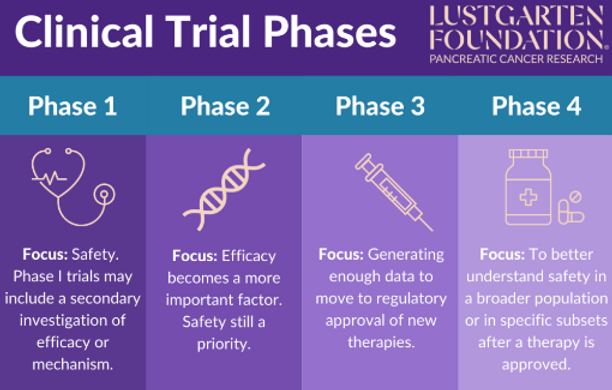Parc AssociationCancer Research
Clinical Trials for Pancreatic Cancer: What Patients Need to Know
Clinical trials are research studies that investigate new treatments or new combinations of treatments.

Pancreatic cancer clinical trials are necessary to determine whether new treatments developed in the laboratory are beneficial to people living with pancreatic cancer.
The Food and Drug Administration (FDA) reviews and analyzes data from successful clinical trials to determine whether an experimental treatment should be approved for a specific disease or disorder, such as pancreatic cancer.
In the fight against pancreatic cancer, clinical trials often provide the best treatment options, and they give patients early access to cutting-edge treatments that can lead to progress in research, improved treatment options and better outcomes.
Why are clinical trials important?
Clinical trials for pancreatic cancer are important because they show us what treatments and care do and don’t work. They can also look at what may increase the risks of getting pancreatic cancer, how to prevent it and find better ways to diagnose it.
Clinical trials for pancreatic cancer may include:
finding ways to diagnose pancreatic cancer at an earlier stage
finding better ways of giving existing treatments – for example, combining different chemotherapy drugs or giving drug combinations in different ways
testing new treatments
looking at ways to control the side effects of treatments
looking at how best to provide care.
Most pancreatic cancer trials are looking at different treatment options. They aim to find better treatments that can help people live longer and improve the quality of their daily life.
Some trials also look at how people feel as a result of treatment, or what they think about the treatment they have had. The trial may call this patient reported outcome measures (PROMS) or patient reported experience measures (PREMS).